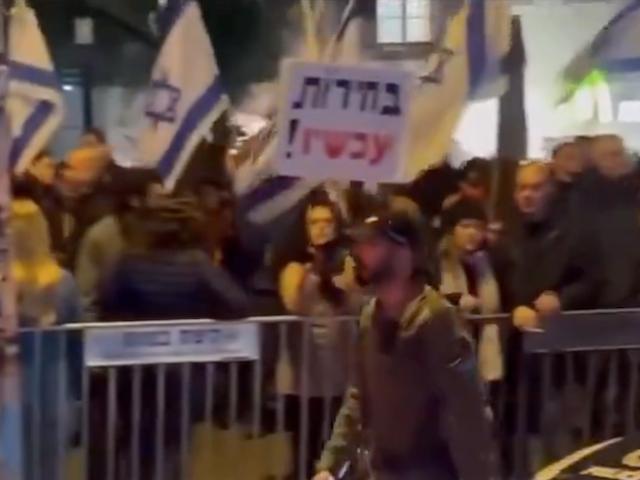Prime Minister Benjamin Netanyahu of Israel remains steadfast in his approach to the situation in Gaza, despite escalating demonstrations against his government. Throughout various cities in Israel, the past weekend witnessed a resurgence of anti-government protests, a movement that had quieted down during the conflict but is now gaining momentum once again. The renewed protests have heard calls for a ceasefire, negotiation with Hamas to get the hostages returned and to head to elections.
In the heart of the protests in Tel Aviv and Jerusalem were the families of hostages, who have now established their demonstrations as a weekly event. These families are calling for a negotiation with Hamas for the safe return of 134 hostages still held in Gaza. Hamas has proposed an exchange for these hostages, contingent upon a comprehensive ceasefire, a condition Netanyahu has categorically dismissed.
1. Tonight Ehud Barak did a Twitter space. In it, he said Israel needs new elections by June so that Netanyahu will ousted in time for Biden to get his Palestinian state. Here's the link to the AI generated transcript. Barak is Speaker 1. https://t.co/nSovI3S92X
— Caroline Glick (@CarolineGlick) February 13, 2024
The refusal to send a representative to Cairo for peace negotiations has sparked outrage among Israeli protesters, who are dismayed by Netanyahu's unwavering commitment to defeating Hamas militarily. Hamas, responsible for a significant raid on southern Israel on October 7, which resulted in the capture of approximately 240 hostages, has expressed willingness to release the captives if Israel ends its blockade on Gaza and frees hundreds of Palestinian prisoners.
Netanyahu's rejection of Hamas's ceasefire offer as "delusional" and his disregard for international pleas for a route to Palestinian statehood underscore his hardline stance. Although he complied with U.S. President Joe Biden's request to send a delegation to Cairo talks, he sees no value in further discussions.
It’s Saturday evening, so thousands of people across Israel are calling for elections NOW. Note the flags before calling them traitors or antisemites or whatever. pic.twitter.com/0YiI2MuGRY
— Ami Dar (@AmiDar) February 17, 2024
The Israeli public's frustration is palpable, with one protester voicing a poignant critique of the government's failures and calling for corrective action by the people. Netanyahu's popularity has significantly declined since the October 7 attack, which precipitated the war on Gaza.
Calls for unity within the military contrast with the demand for democratic dialogue on the streets, as voiced by former IDF soldier Or Szneiberg, highlighting a nation divided on its path forward post-war. Despite these calls, Netanyahu has dismissed the possibility of an early election.
4. What's notable is that @Now14Israel published a poll tonight which showed that if Israel were to go to elections, the Likud would receive 28 seats to Gantz's 26. Netanyahu leads Gantz in suitability to serve as PM 47-34. His coalition has 59 seats to the left's 51. pic.twitter.com/Oux9Cc9gFX
— Caroline Glick (@CarolineGlick) February 13, 2024
Tensions escalate with a War Cabinet member's declaration of intent to invade Rafah unless the Israeli hostages are released before Ramadan. This plan, announced by Netanyahu, has drawn international concern, including from close allies, as over half of Gaza's population has sought refuge in Rafah following Israeli evacuation orders.
The humanitarian toll of the conflict is stark, with the Gaza Health Ministry reporting a death toll of 28,858, including 83 individuals killed in recent Israeli bombardments. This situation underscores the profound complexities and human costs of the ongoing conflict, challenging Israel and the international community to seek a resolution that can bring about peace and security for all involved.


